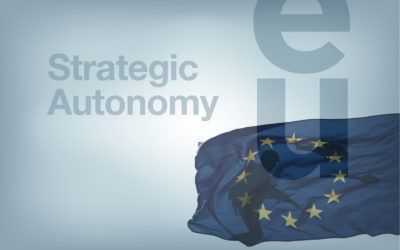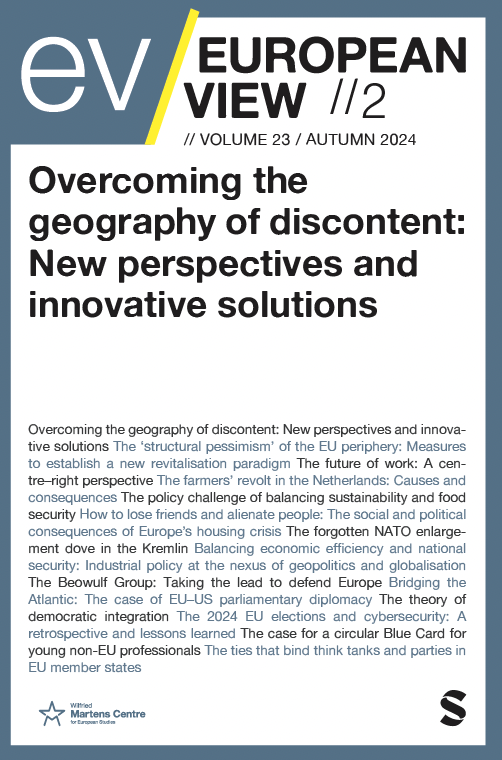The ten commandments of Brexit negotiations
05 July 2017
Since last year when the UK made the decision to leave the EU, we at the Martens Centre have been having an intensive discussion on how to deal with this issue, particularly how to avoid a risk of negative escalation between the UK and the EU. While emphasising constructive communication, just over a week ago we gathered in London to discuss with like-minded experts and decision-makers how to avoid disaster and make the best of it for those of both sides. Here are some of my personal recommendations on how to manage the ongoing negotiations, based on my own experience from the division of assets after the break-up of the former Czechoslovakia.
1. Tackle strategy first, tactics second
To begin with, it is necessary to define the end result, namely the expected outcome of the EU-UK negotiations: the shape of our long-term relationship after the UK leaves. Do we want to remain allies, or just friends and partners, or simply neighbours? If we want to remain allies, does this only apply to NATO or also to other areas of cooperation? Depending on what conclusion the two sides will eventually agree upon, we can proceed to formulating the content of the new deals in all specific and relevant areas – the free movement of persons, trade, security and other topics.
2. Define the “what”
This regards the status of the EU citizens living in the United Kingdom and vice-versa, the final bill for the UK’s exit from the EU, the regime at the border between Northern Ireland and the Republic of Ireland and that between Gibraltar and Spain, and possibly other issues directly related to Brexit.
3. Be flexible on the “when” and the “where”
When, at a relevant moment, the negotiations show that we are on the right track but more time is required to strike a good deal, we should agree on a transition period for the UK to leave the EU. Several factors should be taken into account for that transition period (such as conformity with the EU financial planning period).
4. Consider Brexit irreversible
There will be no second referendum. We should not work with this hypothesis, not even at a theoretical level; we should not fuel false hopes of those who continue to believe that the process of the UK’s exit from the EU can still be reversed.
5. Remember: non-agreement is not an option
Both sides should clearly declare their awareness of the fact that an uncontrolled exit of the UK from the EU in the absence of any agreement on mutual relations is the worst possible outcome for both sides. Brexit-related losses must be kept at a minimum on both sides. To this end, an agreement is inevitable: That means both an agreement on the future arrangement of mutual relations and one on the divorce.
6. Keep it realistic
We should strive for concluding the deals that will be enforceable, sustainable and feasible within the set deadlines. This is the only way to avoid misunderstandings in the future and to minimise the harm caused by any such misunderstanding.
7. Communicate more, squabble less
There is no doubt that Brexit is a lose/lose “game” for both sides (the EU and the UK). The time before the UK’s exit from the EU becomes final (March 2019) should thus be used to cut the losses. The squabbles over the amount of the bill to be paid by the UK could drag on for years (it took close to ten years to resolve the division of assets of former Czechoslovakia). But it would be a waste if those squabbles went on at the detriment of our citizens, trade, investment, or security cooperation.
8. Let diplomats do their job
Brexit talks are now an arena where every spoken word becomes the object of analyses, comments and, of course, reactions. In this kind of atmosphere, it is difficult to offer concessions. Yet we know that concessions are inevitable. Thus, in addition to official negotiations exposed to public scrutiny and media comments, it is also necessary to engage in an intensive “silent” diplomacy.
9. Strive for a compromise…
The most promising method in a win-win or lose-lose game is the search for a compromise. Both sides must realise that compromise is a state where both sides leave the negotiation table (after reaching a compromise) either equally satisfied or equally dissatisfied.
10. …and achieve a win-win
The final decision will be political. It will be made by politicians at the time of ratifying the deals. Both the rhetoric and the expectations should be shaped accordingly. There is a need to work with public opinion right from the beginning. Public discourse should be dominated by the emphasis on mutual benefits and not by rivalry or even vengeance. The EU can only survive if it is built on a positive vision, on positive emotions and, in particular, if it brings added value to its member states.
At one moment, the Communist bloc collapsed like a house of cards in spite of being held together by force, threats and intimidation. It disintegrated because it was becoming an ever greater burden on, and not a benefit for, its member states. That is why the final deal will only be sustainable if it entails the best for both sides.
ENJOYING THIS CONTENT?






















